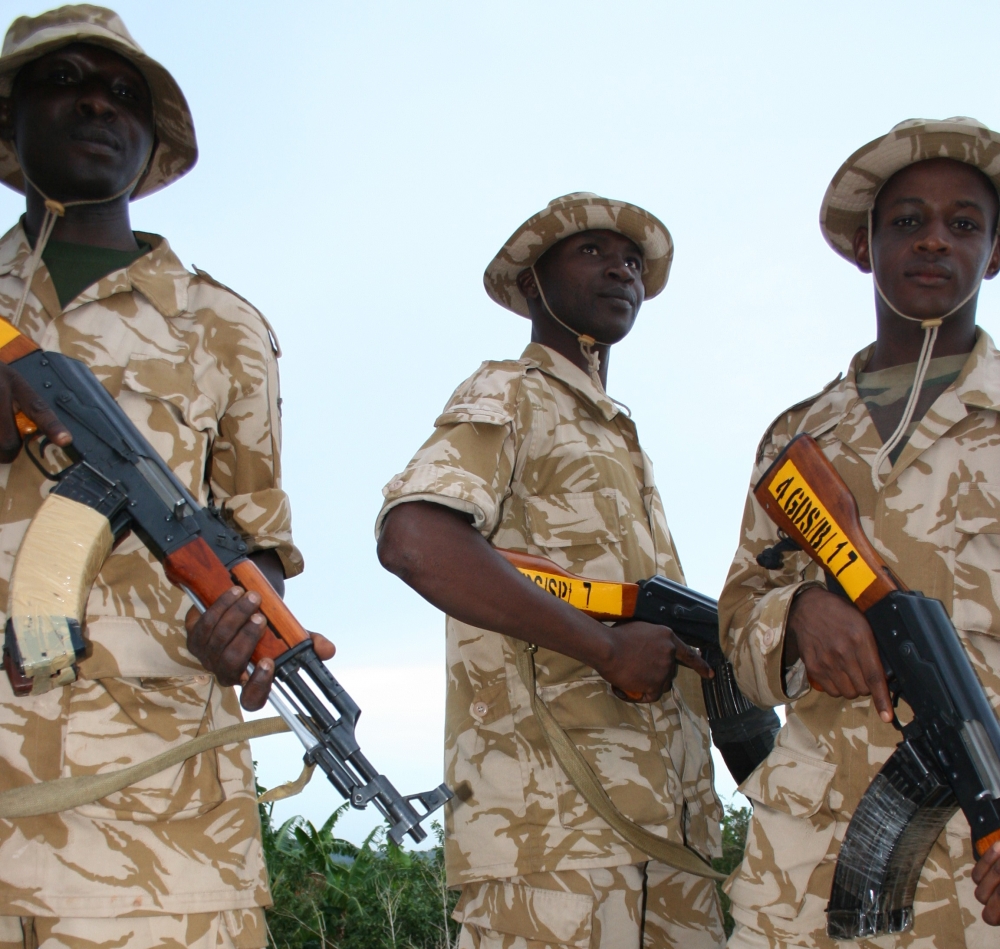

Special for IRIN
Obi Anyadike
Nairobi, 10 June 2016
Public approval in Nigeria and Kenya for their governments’ handling of jihadist violence is low, and citizens have a poor opinion of the security forces that are supposed to protect them, according to a survey-based report released this week by Afrobarometer, a pan-African research network.
Both Nigeria and Kenya are facing ruthless insurgencies, but only about four in 10 of their citizens back the counter-insurgency efforts. That score contrasts with high approval ratings in regional neighbours Niger (96 percent), Cameroon (81 percent), and Uganda (83 percent), which also face security threats.
The Afrobarometer surveys were carried out in 36 countries at the end of 2014 and beginning of 2015 as face-to-face interviews in the language of the respondent’s choice with a maximum +/-3 percent sampling error.
They not only reveal that citizens in Nigeria and Kenya are unhappy with their governments’ performance in dealing with Boko Haram and al-Shabab violence, but also expose significant levels of distrust in the security forces.
Out of all the countries surveyed, public confidence in the police was lowest in Nigeria (21 percent) and Kenya (36 percent) – compared to Niger, where almost nine in 10 citizens said they trusted their police.
When people were questioned on their perceptions of their armed forces, Nigeria’s military was again the worst performer, with only 40 percent of people saying they were trusted. In Kenya, the military enjoyed more confidence at 68 percent.
By comparison, 86 percent of people polled in Senegal regarded their army as reliable; in Tanzania it was 82 percent.
Big caveat
“Context really matters,” said report co-author Rorisang Lekalake. “At that time [of the surveys], there were large numbers of attacks in Nigeria and Kenya. In Nigeria, the situation was so precarious we couldn’t conduct the surveys in three northern states.”
Forty-five percent of Kenyans voted security as their number one concern, as did 39 percent of Nigerians. But the most concern was found in the middle-income island nation of Mauritius (48 percent), followed by Tunisia (47 percent).
By contrast, only 10 percent of Ugandans said they were worried, despite the country’s long battle with al-Shabab in Somalia. Sierra Leoneans were positively sanguine; just three percent mentioned security as an issue.
Obi Anyadike
IRIN
Dalla Nostra Vaticanista Emanuela Provera 21 aprile 2025 The English version is here Nato nel…
From Our Vatican Correspondent Emanuela Provera April 21, 2025 La versione in italiano si trova…
EDITORIALE Massimo A. Alberizzi Milano, 18 aprile 2025 Da un po' di tempo continua ad…
Speciale per Africa ExPress Cornelia I. Toelgyes 18 aprile 2025 Due settimane fa una ventina…
Dal Nostro Corrispondente per Questioni Militari Antonio Mazzeo 17 Aprile 2025 Lo scorso 2 aprile…
Speciale per Africa ExPress Sandro Pintus 16 aprile 2025 “La corruzione e i crimini finanziari…